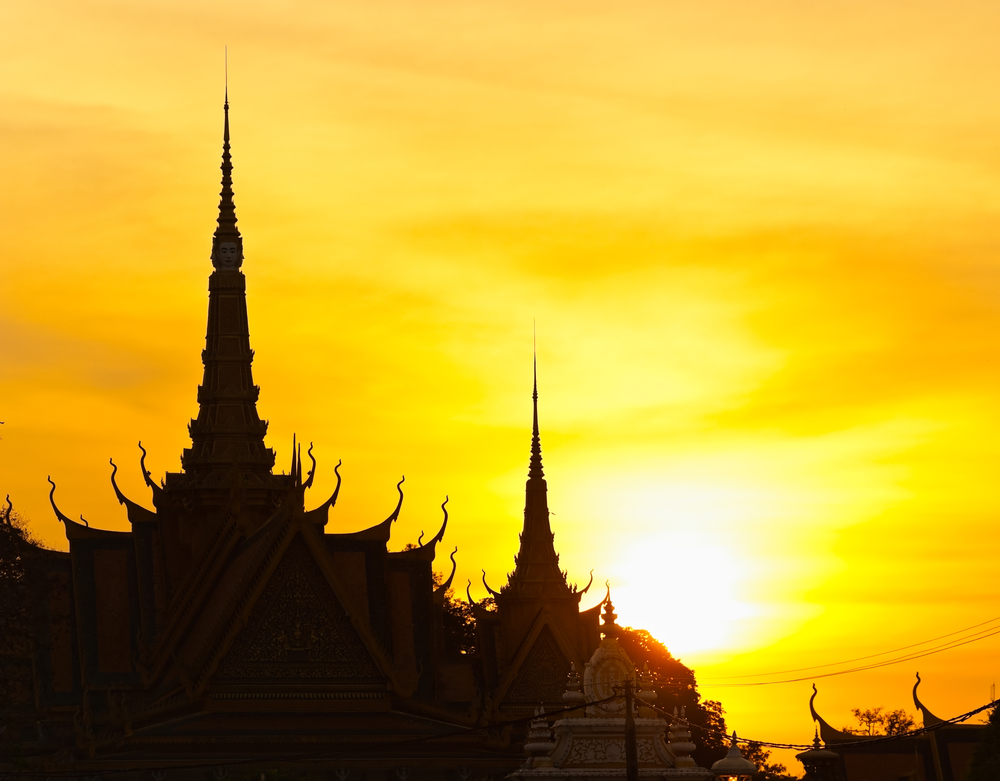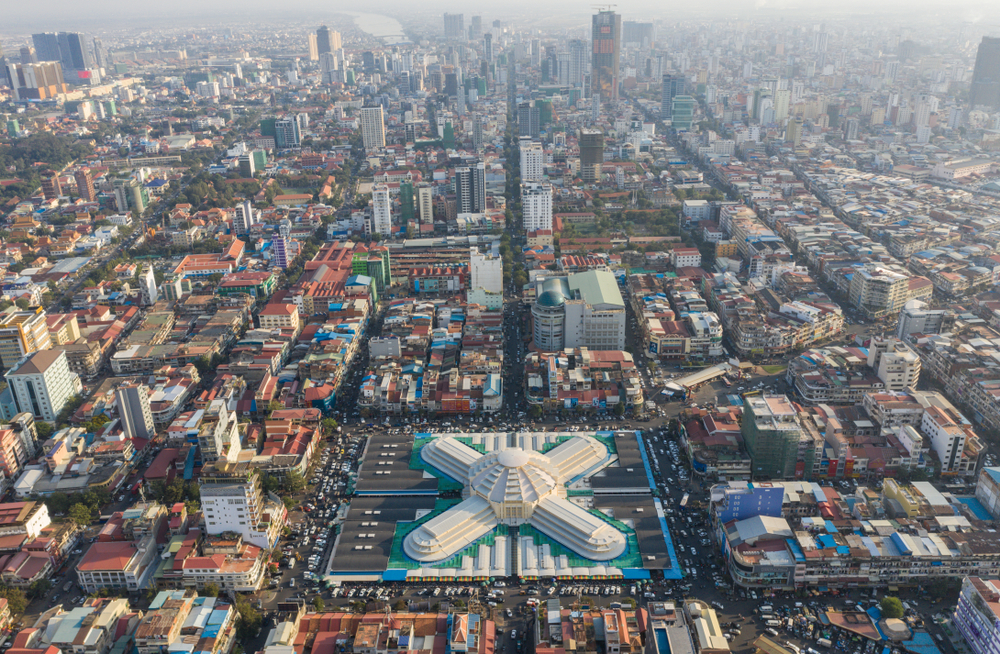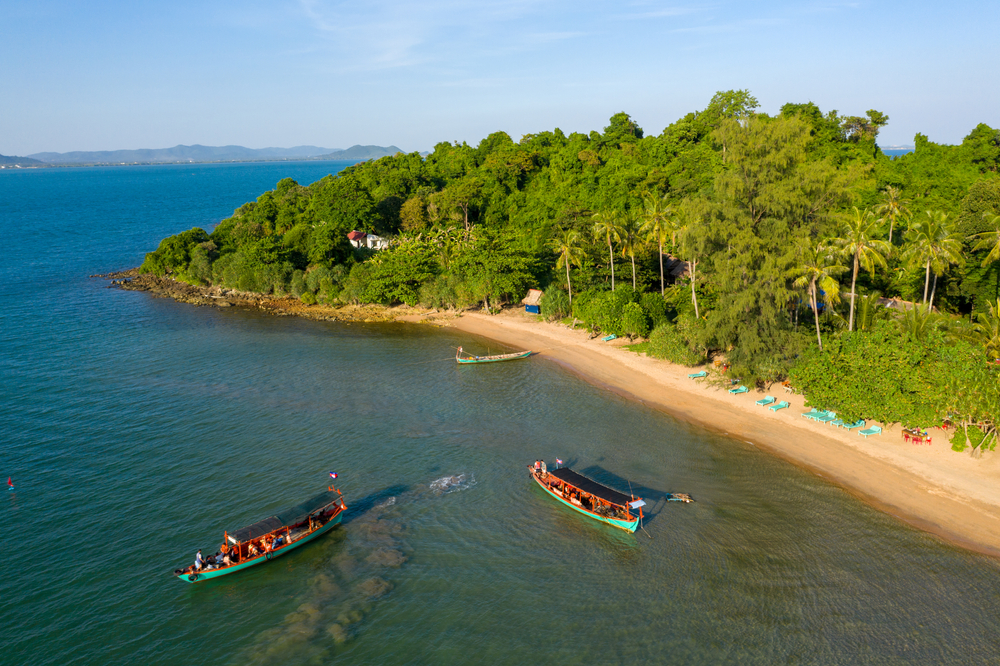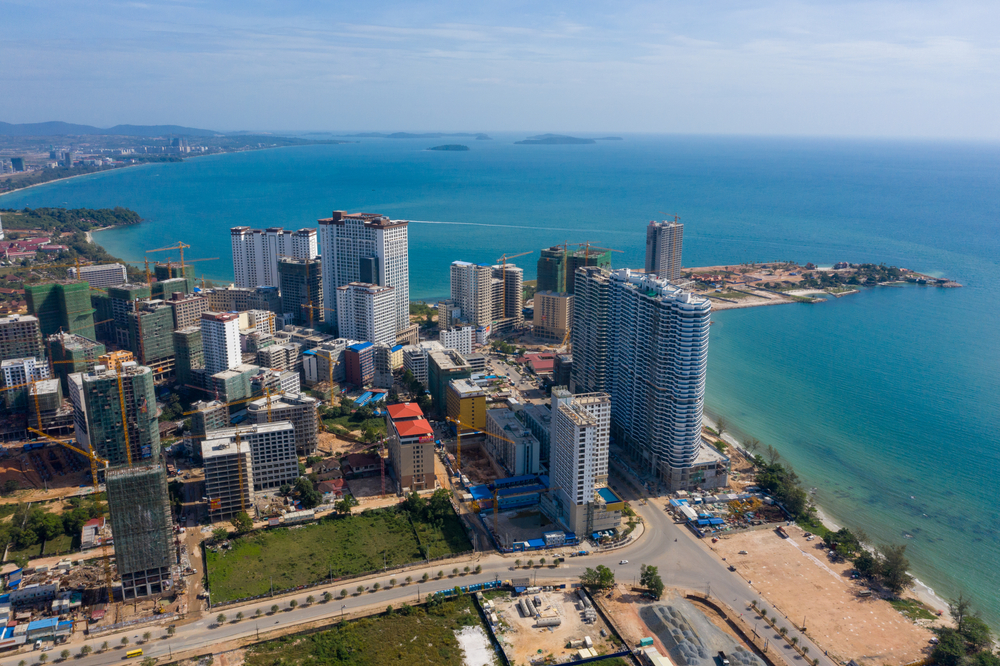Local heroes liberate Phnom Penh’s condo sector through growing investments
A decline in foreign investment has slowed the pace of Phnom Penh’s condo boom, but developers are reaping dividends by catering to Cambodia’s growing investor class

For the past decade, foreign investors have been driving Cambodian real estate, turning sleepy backwaters into frenetic hubs. But after two years of the pandemic, amid travel bans and other restrictions, developers are recalibrating their focus on the local market to survive.
As last year came to a close, Cambodia saw its real estate market limp towards recovery as vaccination rates soared to among the highest in the world and lockdowns were lifted. Sales galleries were busy once again after being closed for months following an outbreak of infections in February, and players in the country’s real estate industry were optimistic they were on course for better times ahead.
It seemed like it was business as usual. But those driving the market were not foreigners. Instead, interest skewed heavily towards locals, who in the race for quick sales and fat profits have long been overlooked.
“Locals are making up a much bigger portion of buyers at the moment,” says Kim Kinkesa, senior research manager for CBRE Cambodia and an esteemed member of the PropertyGuru Cambodia Property Awards judging panel.
Cambodia’s real estate sector began to boom around a decade ago, with land and condominium prices commanding eye-watering sums. At the market’s height between 2013 and 2016, condos were changing hands for as much as 300% over the original purchase price.
In areas like Sihanoukville, where the buying frenzy—driven by a casino rush among Chinese investors—was most acute, prices rose five and even ten-fold.
As the trend was replicated in other parts of the country, real estate became one of the hottest commodities in Cambodia, with the number of condo units quadrupling at times from one year to the next.
Fast forward to 2022, and foreign travel to Cambodia is still but a trickle. Analysts say that foreign investment has declined concurrently.
As Cambodia successfully quashed the virus in the first year of the pandemic, there was broad hope it would weather the global health storm in reasonable shape. But two months into 2021 the country was hit by its worst wave of infections, prompting crippling lockdowns.

“Yes, certainly [there has been] a slowdown in domestic demand since the outbreak in February,” says Ross Wheble, director of Knight Frank Cambodia.
“This impacted footfall at sales galleries as potential buyers were wary of visiting given the increasing number of Covid cases.”
The wave of infections and restrictions didn’t last long as Cambodia mounted one of the most robust vaccine drives in the world.
More: 6 of the most captivating spots to visit in Chroy Changvar, Phnom Penh
But the continued global restrictions on foreign travel—especially China’s ban on outbound travel—has forced significant shifts in the market, with landed property, not condominiums, now becoming all the rage.
“For the residential sector, we will see a two-tiered market with landed housing continuing to outperform the condominium sector, which is expected to see minimal price growth in 2022,” says Wheble.
In the third quarter of 2021, there were 22 new launches of landed property compared with only two in condominiums.

One of the most popular areas for development is the south of Phnom Penh where there were 54 completed landed residential projects and another 30 under construction as of mid-last year.
In the residential sector, we will see a two-tiered market with landed housing continuing to outperform the condominium sector, which is expected to see minimal price growth in 2022
The area, which has often been overlooked by developers in favour of downtown neighbourhoods popular with expats and foreigners, has been given a boost by the construction of a huge new airport nearby and Cambodia’s biggest shopping mall, the Japanese-owned Aeon 3.
CBRE’s Lawrence Lennon said with landed property moving on average 11% during the second and third quarter, the trend was “a reflection of Cambodian buyer’s preference for landed property over more high-rise formats, though a trend bolstered by the high number of new launches.”
In areas outside of Phnom Penh, locals, too, have come to dominate the market. The pandemic has seen Cambodians travel more domestically, spurring demand for properties in coastal and provincial markets like Kep and Kampot, said Wheble. “Several housing projects as well as high-end resorts have launched or are in the pipeline off the back of this growing trend,” he says.
“Kep is becoming an active investment destination with the government creating a new 2.7-kilometre public beach that will be 30 metres wide.”
But, for now, Phnom Penh remains the country’s key market and locals its key investors. Analysts say without the scale of foreign investment it was getting before, the market won’t grow as big or fast. But many see that as a good thing.
In the years leading up to the pandemic, the real estate sector was showing signs of a bubble forming.
An International Monetary Fund (IMF) report detailed some key concerns. It said: “Real estate developers are reportedly offering loans to buyers and are financed by foreign funding, while not being subject to stringent regulatory and supervisory oversight. Credit is increasingly being channeled to the real-estate sector, which is exhibiting pockets of vulnerability.”

Kim Kinkesa said condo developers must adapt to capture some of the country’s rising middle class. Some like Prince Real Estate, one of the country’s biggest developers, have already started doing that by lowering their prices to the more affordable range for Cambodian buyers of between USD1,000 per sqm to USD2,000 per sqm.
They have also started offering more customisable options like cooking facilities and fewer furnishings following Cambodian tastes, she said.
“What we are seeing is some of the condos that were originally for Chinese are now being redesigned or changing the condition of the handover to attract more local buyers,” she said.
More: Cambodian economy to grow 4.5% in 2022 and 5.5% in 2023: World Bank
“I think the market can grow more maturely and sustainably than it did before.”
It remains to be seen whether the market starts overheating again when foreign investors return. But the pandemic has proven that going local can bear rich fruit for developers in Cambodia.
The original version of this article appeared in Issue No. 170 of PropertyGuru Property Report Magazine. Write to our editors at [email protected].
Recommended
Why everyone is moving to Selangor and Johor: Malaysia’s real estate comeback
Malaysia’s upturn in fortunes is especially prevalent in secondary destinations such as Selangor and Johor
Penang’s silicon boom: How the US-China tech war is supercharging local real estate
Penang’s booming semiconductor industry has created ripples within the local real estate sector
New leader, new opportunities: How Hun Manet is shaking up Cambodia’s real estate game
Hun Manet is overseeing decent economic growth and widening access to the country’s real estate market for foreigners
Singapore embraces inclusive housing reforms amid resilient demand
The Lion City’s regulatory strength continues to exert appeal for international investors








